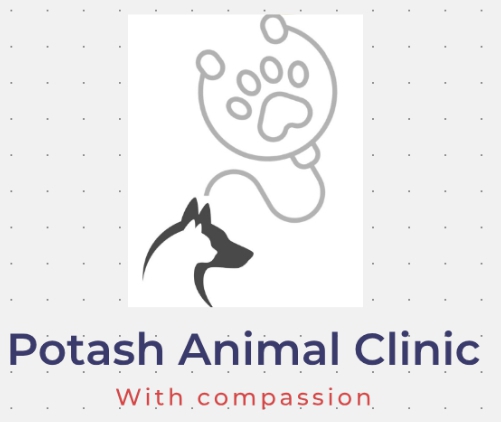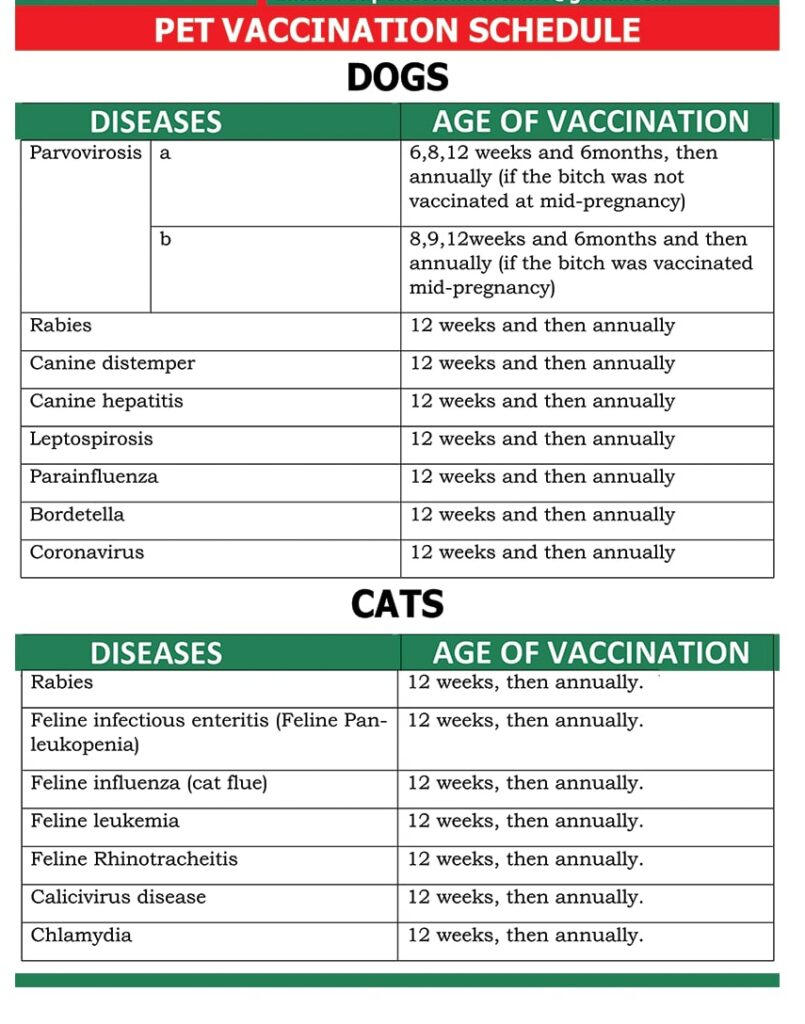COMMONLY ASKED QUESTIONS
- What are the most important vaccines for pets?
- What is the importance of vaccination?
- Why is a vaccine important for dogs?
- What are core vaccines for dogs?
- Why do dogs need vaccines every year?
- What diseases do dog vaccines prevent?
- What are the advantages and disadvantages of vaccination?
- What are the benefits of vaccinating dogs?
- What are the benefits of the 5-in-1 vaccine for dogs?
- Are dog vaccines really necessary?
- Which vaccines can prevent disease from dog to human
- What vaccines are important?
- What are the 7 types of vaccines?
- Why is it important to be immunized?
- What are the 10 most common vaccines?
- What are the benefits of vaccinating animals?
- Why is a vaccine important for dogs?
- What are the most important vaccines for dogs?
- Why do dogs need 2 vaccinations?
- How many times do dogs need vaccines?
- What vaccine prevents parvo?
- Do dogs need 3 vaccinations?
- What are the side effects of the 5 in 1 vaccine?
- Which vaccine is good for dogs?
- At what age do you stop vaccinating your dog?
- What is the 5 in 1 leptospirosis vaccine?
- What are the benefits of dog vaccines?
- Can a dog survive without vaccinations?
- Why dogs must be vaccinated?
- Are vaccines necessary?
- What do vaccinations protect dogs from?
- Which disease can be controlled by vaccinating dogs?
Introduction
Vaccination simply means the administration of a substance (usually called a vaccine) into your dog and/or cat which helps to stimulate the immune system(body defense mechanism of your dog/cat) against a particular infection and/or pathogen
Vaccines are typically prepared from an inactivated or weakened form of the causative agent(eg virus) or from its constituents or products.
Importance of vaccination
1. Protects your pet from diseases
Pets in Uganda can be affected by a various disease and infections. Some of these infectious can be life-threatening and can lead to loss of life of your pet in the shorts time. Vaccination is therefore very crucial to the health of all pets since it protects your pet from various diseases and infections. Pets should receive their vaccines at a very young age since their immune system is very weak and they cannot fight off diseases.
2. Protects you,your family and the community at large.
Some disease such as Rabies can be passed on from a pet to human beings. These diseases are called Zoonoses. Vaccination of your pets will help to prevent and control such disease in the community.
3. Vaccination saves a lot of money.
It is very clear that the cost of vaccination is very low compared to the costs a pet owner will incur incase the pet gets sick. For example, in Uganda, the cost of vaccinating a dog against parvovirus can be as low is UGX50,000(13.52 USD). However if a puppy gets infected by parvovirus, the cost of treatment may go as high as UGX 2,000,000 (540.87USD).
4. Protects other pets from diseases
Most diseases affecting pets are high contagious and can move from one pet to other. Vaccination of your pets reduces on the risk of contracting disease from other pets as well as it spreading diseases to other pets. This is very important in cases where the pet owner has more than one pet
Others
It improves on the quality of life for your pet, since they are protected against the most devastating and life-threatening diseases.
It also meets the legal requirement of vaccination of all animals in Uganda
Vaccination schedule for dogs
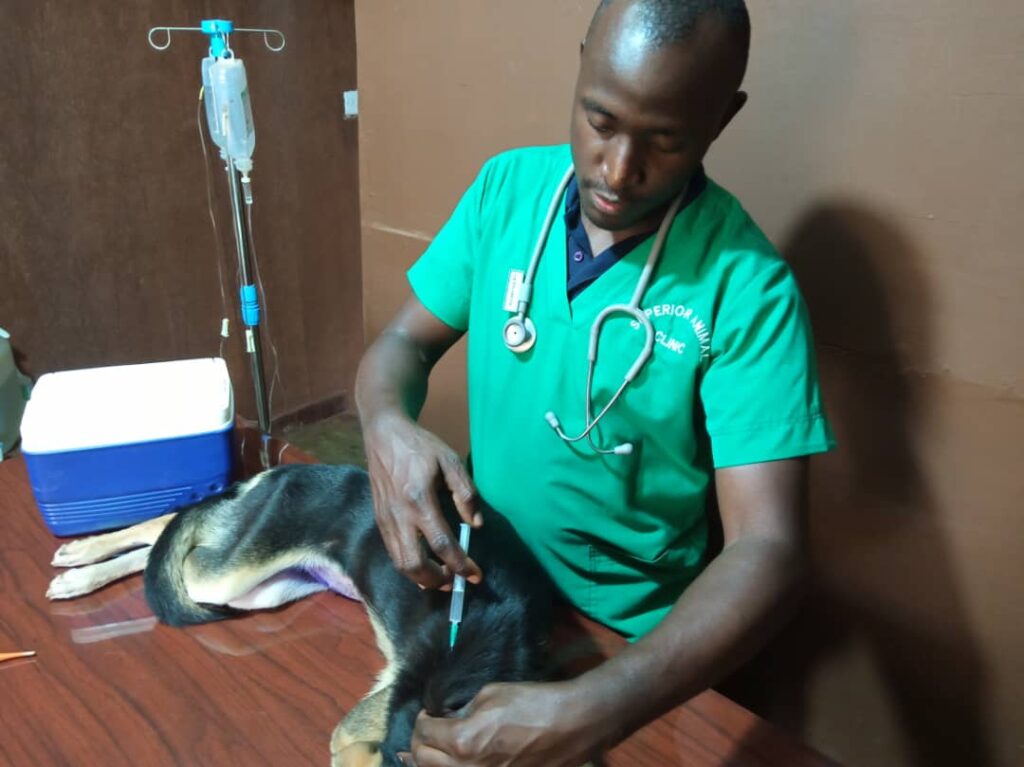
Dogs in Uganda receive vaccination for the following diseases
- Parvovirosis
- Rabies
- Canine hepatitis
- Canine distemper
- Canine leptospirosis
- Para-influenza
- Canine Borditellosis
- Canine coronavirus
Detailed Vaccination schedule
Diseases | Age of vaccination | |
Parvovirosis | a | 6,8,12weeks and 6months, then annually(if the bitch was not vaccinated at mid-pregnancy) |
b | 8,9,12 weeks and 6months, the annually(if the bitch was vaccinated at mid-pregnancy) | |
Rabies | 12 weeks and then annually | |
Canine distemper | 12 weeks and then annually | |
Canine Hepatitis | 12 weeks and then annually | |
Canine Coronavirus | 12 weeks and then annually | |
Leptospirosis | 12 weeks and then annually | |
Bordetella | 12 weeks and then annually | |
Para-influenza | 12 weeks and then annually | |
In Uganda, the vaccination schedule is summarized as below
Age | Vaccine | Diseases targeted |
6weeks | Parvo 1 | Parvovirosis |
8wks | Parvo 2 | Parvovirosis |
12weeks and then annually | Rabies | Rabies |
Dog Cocktail | Canine distemper Canine hepatitis Canine coronavirus Leptospirosis Bordetella Parvovirosis Para-influenza |
Vaccination schedule for cats
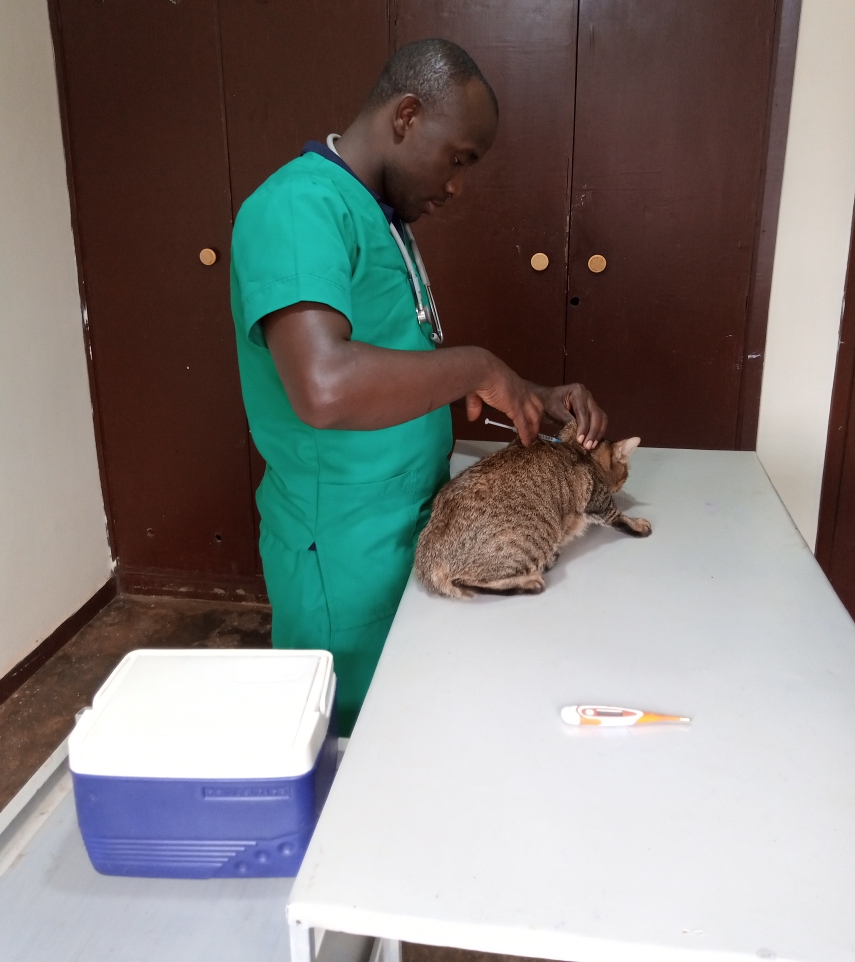
In Uganda cats are vaccinated against the following diseases
- Rabies
- Feline Infectious peritonitis
- Feline panleukopenia
- Feline influenza
- Feline Rhino-tracheitis
- Calicivirus disease
- Chlamydia
Disease | Age of vaccination |
Rabies | 12 weeks, then annually. |
Feline infectious Enteritis(Feline panleukopenia) | 12 weeks, then annually. |
Feline infectious peritonitis | 12 weeks, then annually. |
Feline influenza(cat flue) | 12 weeks, then annually. |
Feline Rhinotracheitis | 12 weeks, then annually. |
Calicivirus disease | 12 weeks, then annually. |
Chlamydia | 12 weeks, then annually. |
In Uganda, the vaccination schedule is summarized as below
Age | Vaccine | Disease targeted |
12 weeks, then annually | Rabies | Rabies |
| Cat cocktail | Feline infectious Enteritis(Feline panleukopenia) Feline infectious peritonitis Feline influenza(cat flue) Feline Rhinotracheitis |
Vaccination card/vaccination certificate
This is a document issued by a veterinary doctor after vaccination of your dog and/or cat. This is an important document as it acts as the proof of vaccination. If this document is not issued, the pet owner should strongly demand for it from the veterinarian. This will be the only proof that your pet has been vaccinated least it will not be considered vaccinated.
Components of a good vaccination card/vaccination card.
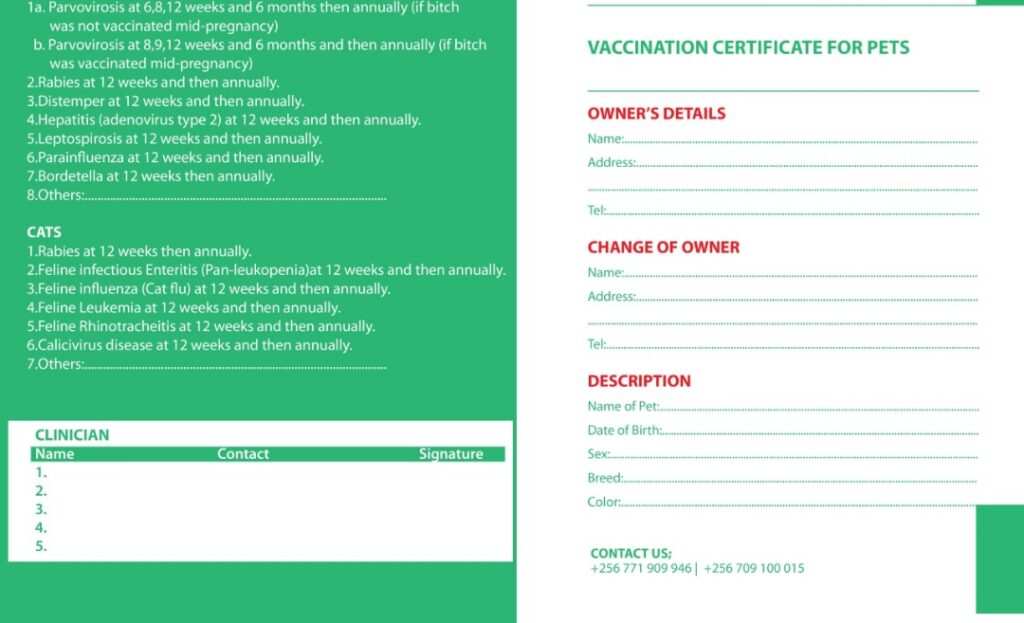
1. Particulars of the owner
The vaccination card should clearly show the details of the owner of the pet. These include, but are not limited to: name of the owner, his/her contact, his/her location…etc.
2. Particulars of the dog/cat.
The vaccination card should clearly show the details of the pet, these include name of the pet, breed, sex, date of birth, color, as well as any distinguishing marks.
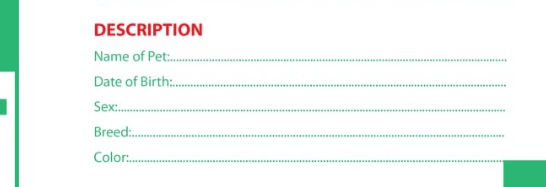
3. Vaccination dates
There are two important dates that should be clear on the vaccination card. These are;
Date of vaccination;- This show the day when the vaccination is done
Next due date;- This date shows when the next vaccination should be done.
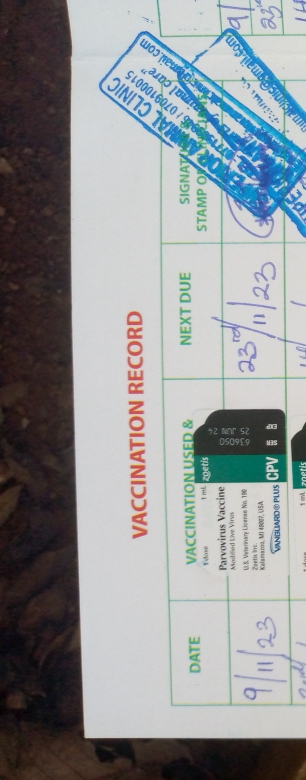
4. Veterinarian’s particular.
A good vaccination card should also show the particulars of the veterinary doctor, these include name of the veterinarians, his contacts and signature..etc.
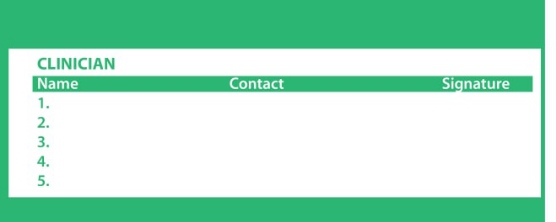
5. Vaccination sticker
This is the most important component of the vaccination card. Each vaccination container/bottle has a sticker which should be pulled off and attached to the vaccination card
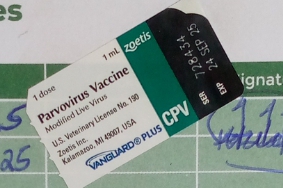
Conclusion
Vaccination may not necessary stop your dog/cat from getting infected. But it reduces on the adverse effects following any infection and the risk of death. Being a very important preventive measure, it therefore very important for to talk to veterinary doctor today about the most appropriate vaccination schedule for your dog and/or cat.
